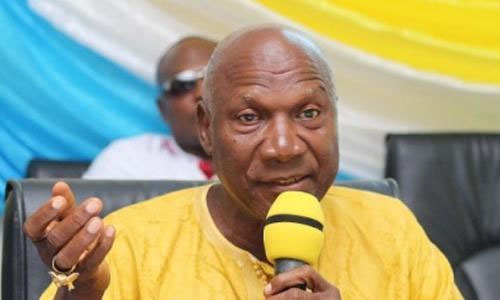Sometimes, one subjected to what he considers as unjust treatment, would see himself defending someone caught in a similar situation. In so doing, though, he could see similarity where there could be difference. It is how a Tarzan is advocating lawless, better still unrestrained, freedom to broadcast anything anyhow.
In our youthful exuberance, perhaps even impetuosity, we had read, sang and praised Chairman Mao’s maxim of using unconstitutionality to achieve constitutionality. Coup makers who disrupt, destruct and destroy for self at the expense of others, do find solace in that. But that has nothing to do with freedom. Freedom in servitude is a joke. It is unsustainable and would fizzle out under the slightest weight of rightness.
It is what broadcasting piracy is about. When some feel voicelessly squeezed out without legitimate frequency to broadcast what they see as essential, critical and liberating content, they resort to piracy. Others, though, may be pirating frequency, doing it mischievously or for selfish gains.
JOY FM was piracy as was Radio EYE. The one difference was that the former had the support of government, which later contrived legitimacy for the station by ridiculously saying all frequencies were naturally assigned to GBC. With that nonexistent authority, GBC had reassigned one to JOY FM, said they of congress.
Now hear this. That same frequency, 99.7 FM, had, before JOY FM, indeed, been assigned to ‘Voice of Legon’ (now ‘Radio Univers.’)The station was the radio broadcasting training laboratory for students of the University of Ghana, School of Communication Studies, who were studying that subject. It was being actively used by the training institution when the powers that were handed it over on a silver platter to JOY FM.
Radio EYE was different. It was operated by a citizen who felt he had been a spectator for too long and had been unfairly prevented from exercising a fundamental citizen responsibility. That duty was owning and operating a broadcasting frequency. To him, the deprivation of the right to communicate needed to be illegally flouted in fulfilment of a constitutional right.
By that argument, the broadcasting regulation legislation everyone has been advocating for, would be moot. It would be unneeded; because, operators would be allowed to flout it with no consequence. Ours is a motherland national character of spending a chunk of our resources on making laws that would never be implemented.
Whatever regulation was enforced to shut Radio EYE was so applied in a pseudo democracy in which everyone else who was not a member of the governing congress people was excluded. One was shut out of owning a piece of the national frequency spectrum to air dissent. Conforming was the unwritten prerequisite for being allocated a frequency to broadcast.
As a motherland, there is no simple specific law regulating broadcasting. Content of radio and television range from garbage to the best that could be found anywhere beyond our borders. Owners operate on the basis of a friendly government syndrome, by which a national communications authority ministerial whim has been made to usurp the mandate of a national media commission constitutional body.
Our governments regard the broadcasting frequency as goodies, spoils, or booty, successfully wrestling power fairly or foully; with ninety per cent, or thereabouts, having gone to the congress fold. They almost exhausted whatever was available over the five-year period1995-2000, when the sharing initially happened. By the time they left in 2000, virtually all identified frequencies were gone into their members’ laps. Osonomma picked up the crumbs between 2001 and 2008. And, thereafter, it has been mopping up by whoever of whatever.
Since the beginning of the sharing, compatriots have had to taste freedom sourly. Statements such as the Tarzan one, don’t seem to give hope for any sweetness anytime soon. It suggests no clear way in which compatriots would ever taste sweet airwaves freedom.
What appeared an unbridled desire to commercialise in the distribution of broadcast frequencies, appeared to have guided the process of their issuance in the ‘liberalisation’ of the airwaves in the mid-1990s. Despite the sometimes inconsistencies between commercialising and liberalising, we don’t seem to have minded the friction as we keep pressing on with money over quality and everything else.
Rightly, it is argued, the NMC should be the body that issues and regulates broadcast frequencies. It has been a personal crusade some may consider over-flogged by me. That may be so; but without that arrangement, closing stations and other related unwanted developments would continue to be associated with quality broadcasting in the motherland for years to come.
Personally, I see myself as having failed to discharge a responsibility to the motherland. To date, I have been unable to fulfill the constitutional duty of conscientiously exposing beneficiary owners of the frequencies operated by radio and television stations in the motherland. That should be a simple duty of a university teacher of communication studies. The exposure should help understand better how, for example, JOY FM was allowed to hijack the 99.7 frequency. Maybe someone of the youthful would do that.
By Kwasi Ansu-Kyeremeh


